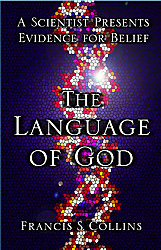
In Masterclass in writing Dr. Royce Francis not only weaves together theological reflection and practical suggestions on becoming a skilled writer in general and within one’s field, but also offers exercises to put the ideas in practice. If along the way you have missed some of “the classes,” click here. Questions and conversation are welcome—feel free to use the Comments section to express them, or email them to http://www.intervarsity.org/contact/emerging-scholars-network.
Scripture Focus
For God is Spirit, so those who worship him must worship in spirit and in truth. —John 4:24, NLT
Reflection

Although I personally find J. Craig Venter’s account of, and approach to, the discovery of the human genome sequence more compelling, I will never forget how I felt reading Francis Collins’s emotional account of his group’s discovery of the same. While J. Craig Venter concluded, from a materialistic perspective, that the discovery of our genome sequence should lead one to have even greater confidence that we can confront the capriciousness of chance to create our own story, Francis Collins was driven to worship the God whose Word created it all. Francis Collins recognized that in some sense he was reading The Language of God, and that there was no other reasonable response to his discovery but worship.
I want to encourage you to read Dr. Collins’s account of his life and discoveries. I think his story should be read by every Christian academic, not necessarily for his theology or for the obvious importance of his scientific and cultural contributions. No, I believe we should all read his account because it is such a vivid example of the right response to Jesus as he leads us in the places he has assigned to us.
In Write to Learn, Donald Morrison continually describes writing as an act of discovery. But what is revealed is not necessarily our objects. No, we are the subjects of our writing, and according to Morrison we are the things being revealed as we write.
What this means is that when we write to pursue an area of inquiry in obedient and affectionate response to the call of Christ, our writing is an act of worship that reveals both us and God in the process. Let me repeat: when you are writing, you are writing not only to serve others, to serve your community of practice, or to contribute to human artifice, but your writing reveals something about yourself and about God in the process. Your writing becomes worship—for your sake and for God’s sake.
Now, although I believe writing is an act of worship, I’m not completely sure who the audience of the revelation that takes place in writing is. I also feel constrained by length and time not to explore that more here. But let me conclude my reflection by saying this: when we combine obedience and love, we are prepared to approach the truth in worship. While we are constrained by our humanity to know only in part, we have the privilege of approaching the truth through Christ.
Action
Last week our reflections concluded by acknowledging that love is the only thing that remains. Our research questions disappear when they are solved. Our lines of inquiry are only interesting as long as the moment helps to cultivate interest. Our theories pass away with the paradigm. And our students and colleagues will remember almost nothing of what we have said and written. What remains is love.
But if love is what makes our work meaningful, then worship is what makes our work important. We are reminded of this when we read:
For no one can lay a foundation other than that which is laid, which is Jesus Christ. Now if anyone builds on the foundation with gold, silver, precious stones, wood, hay, straw—each one’s work will become manifest, for the Day will disclose it, because it will be revealed by fire, and the fire will test what sort of work each one has done. ‗1 Corinthians 3:11-13, ESV
With this in mind, this week’s action is intended to help us orient ourselves towards this truth.
- Read [at least part of] a biography or autobiography of your favorite intellectual. This person doesn’t have to be Christian. But the goal of your reading is to identify their object(s) of worship. How does their worship drive them along in their work? What lessons does their life teach you about the role of worship in your work?
Peace and Blessing.
Royce is an associate professor of engineering management and systems engineering at the George Washington University. He conducts and teaches under the broad theme “SEEDâ€: Strategic [urban] Ecologies, Engineering, and Decision making. His research and teaching interests include infrastructure sustainability and resilience measurement, risk analysis, and drinking water systems analysis. Royce is a member of the American Society of Civil Engineers (ASCE), and the Society for Risk Analysis (SRA).

Leave a Reply